January 1, 2025: A Comprehensive Calendar Guide
Related Articles: January 1, 2025: A Comprehensive Calendar Guide
- F1 Calendar 2025: Race Start Times Announced
- 2025 Calendar Online Free Printable: Plan Your Year With Ease
- Calendario Escolar Extremadura 2025
- 2025 New York City Event Calendar: A Comprehensive Guide To Unforgettable Experiences
- Google Calendar 2025: A Comprehensive Guide To Planning Your Year
Introduction
In this auspicious occasion, we are delighted to delve into the intriguing topic related to January 1, 2025: A Comprehensive Calendar Guide. Let’s weave interesting information and offer fresh perspectives to the readers.
Table of Content
Video about January 1, 2025: A Comprehensive Calendar Guide
January 1, 2025: A Comprehensive Calendar Guide
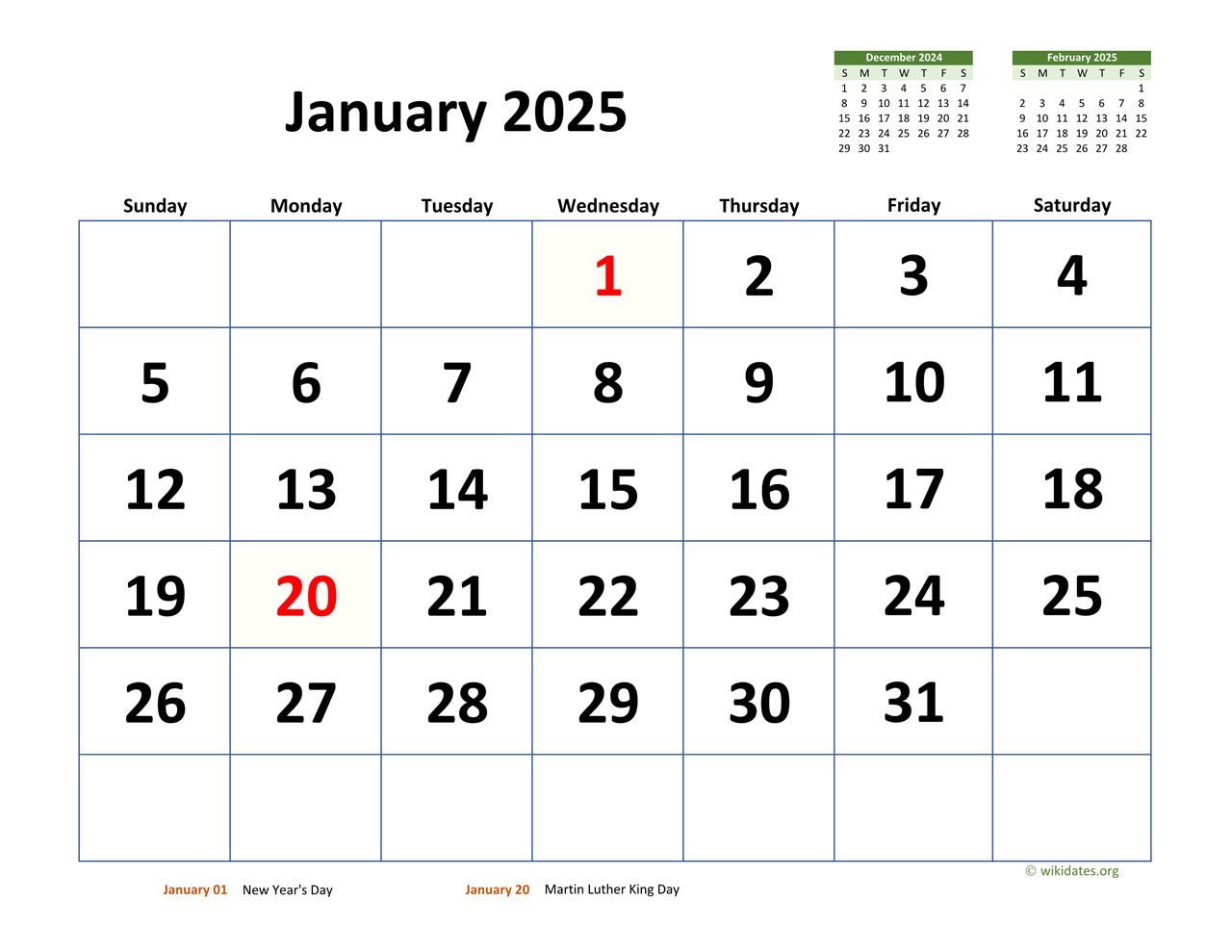
January 1, 2025, marks the beginning of a new year, a fresh start, and a time for reflection. As we embark on this journey, it is essential to have a comprehensive understanding of the calendar for the year ahead. This detailed guide will provide you with all the information you need to plan your year effectively and stay organized throughout 2025.
The Gregorian Calendar
The Gregorian calendar is the most widely used calendar in the world today. It was introduced in 1582 by Pope Gregory XIII and has been adopted by most countries since then. The Gregorian calendar is a solar calendar, meaning that it is based on the Earth’s orbit around the sun. It has 365 days in a year, with an extra day added every four years to account for the fact that the Earth’s orbit is not exactly 365 days long.
January 2025
January 2025 begins on a Wednesday and has 31 days. The first day of the year is New Year’s Day, a public holiday in many countries. Other notable dates in January 2025 include:
- January 6: Epiphany, a Christian holiday commemorating the visit of the Magi to the infant Jesus.
- January 15: Martin Luther King Jr. Day, a federal holiday in the United States honoring the civil rights leader.
- January 20: Inauguration Day, the day on which the newly elected President of the United States takes office.
- January 26: Australia Day, a national holiday in Australia commemorating the arrival of the First Fleet in 1788.
Key Dates in 2025
In addition to the notable dates in January, there are several other key dates to keep in mind throughout 2025:
- February 14: Valentine’s Day, a day to celebrate love and romance.
- March 8: International Women’s Day, a day to celebrate the achievements of women and raise awareness of gender equality.
- April 1: April Fools’ Day, a day for pranks and practical jokes.
- May 10: Mother’s Day, a day to honor mothers and celebrate their contributions.
- June 21: Summer solstice, the longest day of the year in the Northern Hemisphere.
- July 4: Independence Day, a federal holiday in the United States commemorating the signing of the Declaration of Independence.
- August 15: Assumption of Mary, a Catholic holiday celebrating the belief that the Virgin Mary was taken up into heaven.
- September 22: Autumnal equinox, the day when the sun crosses the celestial equator and the day and night are of equal length.
- October 31: Halloween, a day associated with costumes, candy, and trick-or-treating.
- November 11: Veterans Day, a federal holiday in the United States honoring military veterans.
- November 27: Thanksgiving Day, a federal holiday in the United States celebrating gratitude and family.
- December 25: Christmas Day, a Christian holiday commemorating the birth of Jesus Christ.
Public Holidays in 2025
The following are the public holidays in the United States in 2025:
- January 1: New Year’s Day
- January 20: Inauguration Day
- February 17: Presidents’ Day
- May 26: Memorial Day
- June 19: Juneteenth National Independence Day
- July 4: Independence Day
- September 1: Labor Day
- October 13: Columbus Day
- November 11: Veterans Day
- November 27: Thanksgiving Day
- December 25: Christmas Day
Tips for Staying Organized
To stay organized throughout 2025, consider using a planner or calendar app. This will help you keep track of appointments, events, and deadlines. You can also use a to-do list to keep track of tasks and errands.
It is also important to set realistic goals for yourself. Don’t try to do too much at once. Break down large tasks into smaller, more manageable steps. This will help you stay motivated and avoid feeling overwhelmed.
Finally, don’t be afraid to ask for help if you need it. There are many resources available to help you stay organized and on track.
Conclusion
The January 1, 2025 calendar provides a roadmap for the year ahead. By understanding the key dates and public holidays, you can plan your year effectively and stay organized throughout 2025. Remember to set realistic goals, use a planner or calendar app, and don’t be afraid to ask for help when needed. With a little planning and organization, you can make 2025 a productive and successful year.
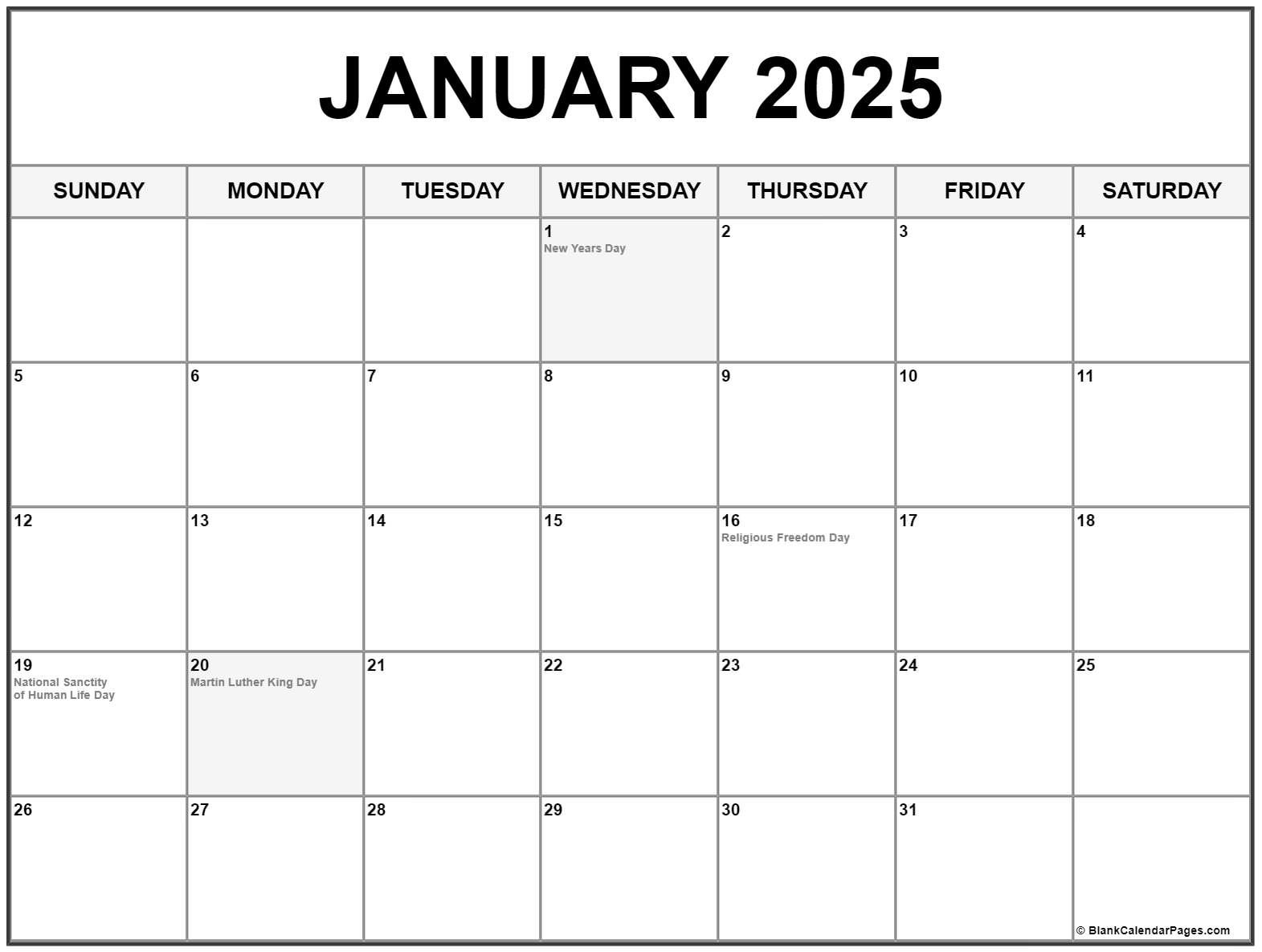
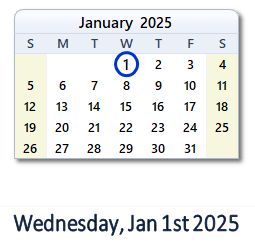
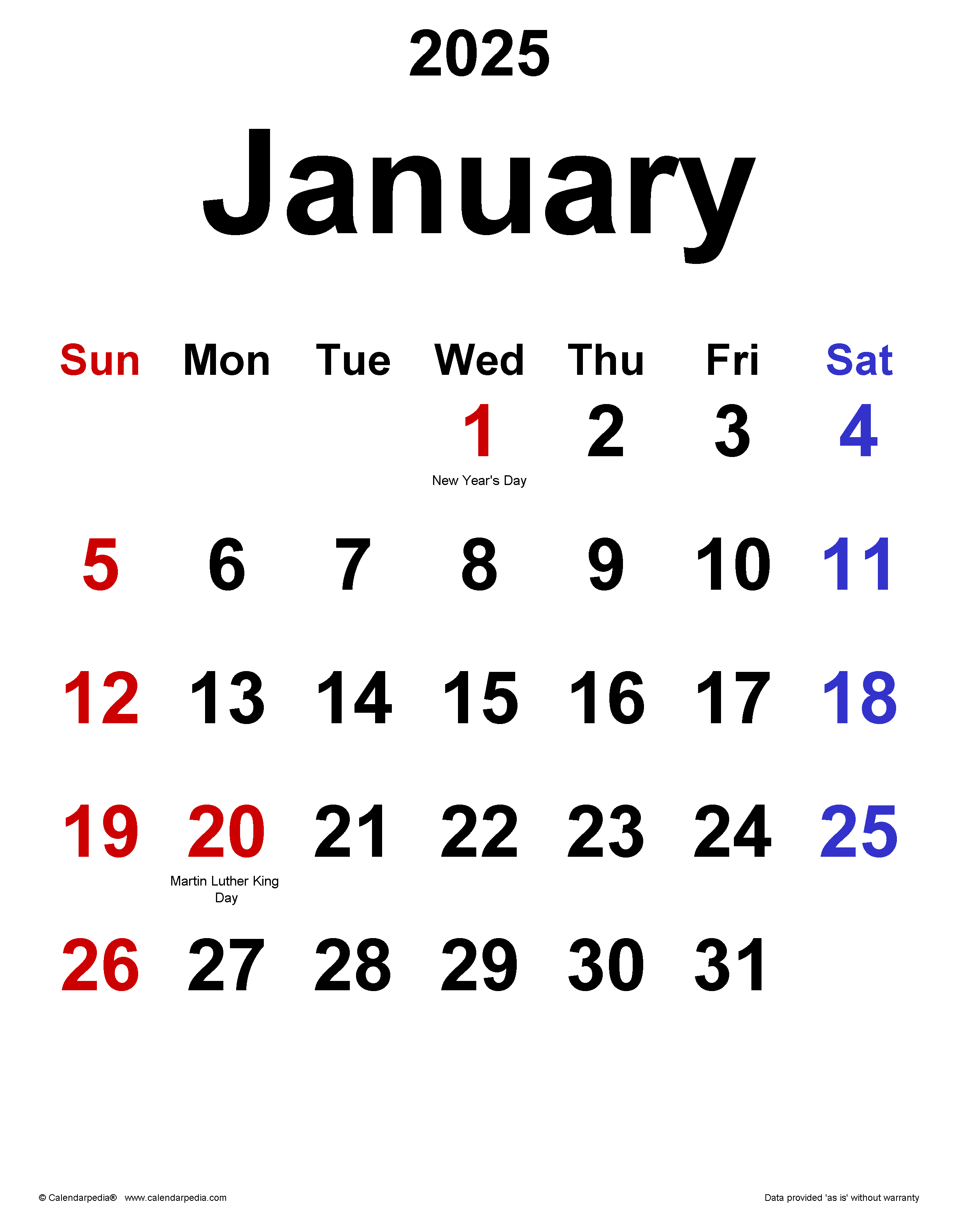

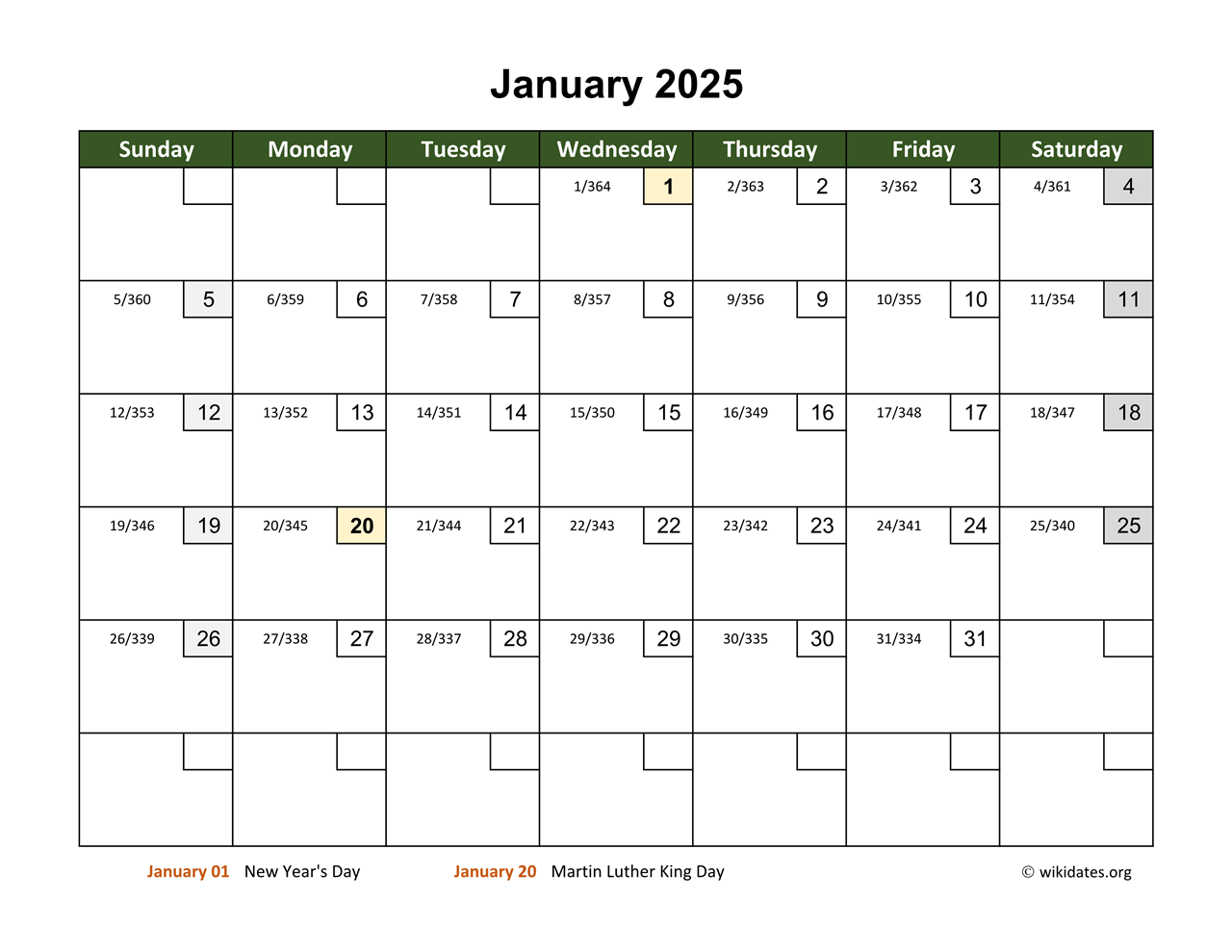
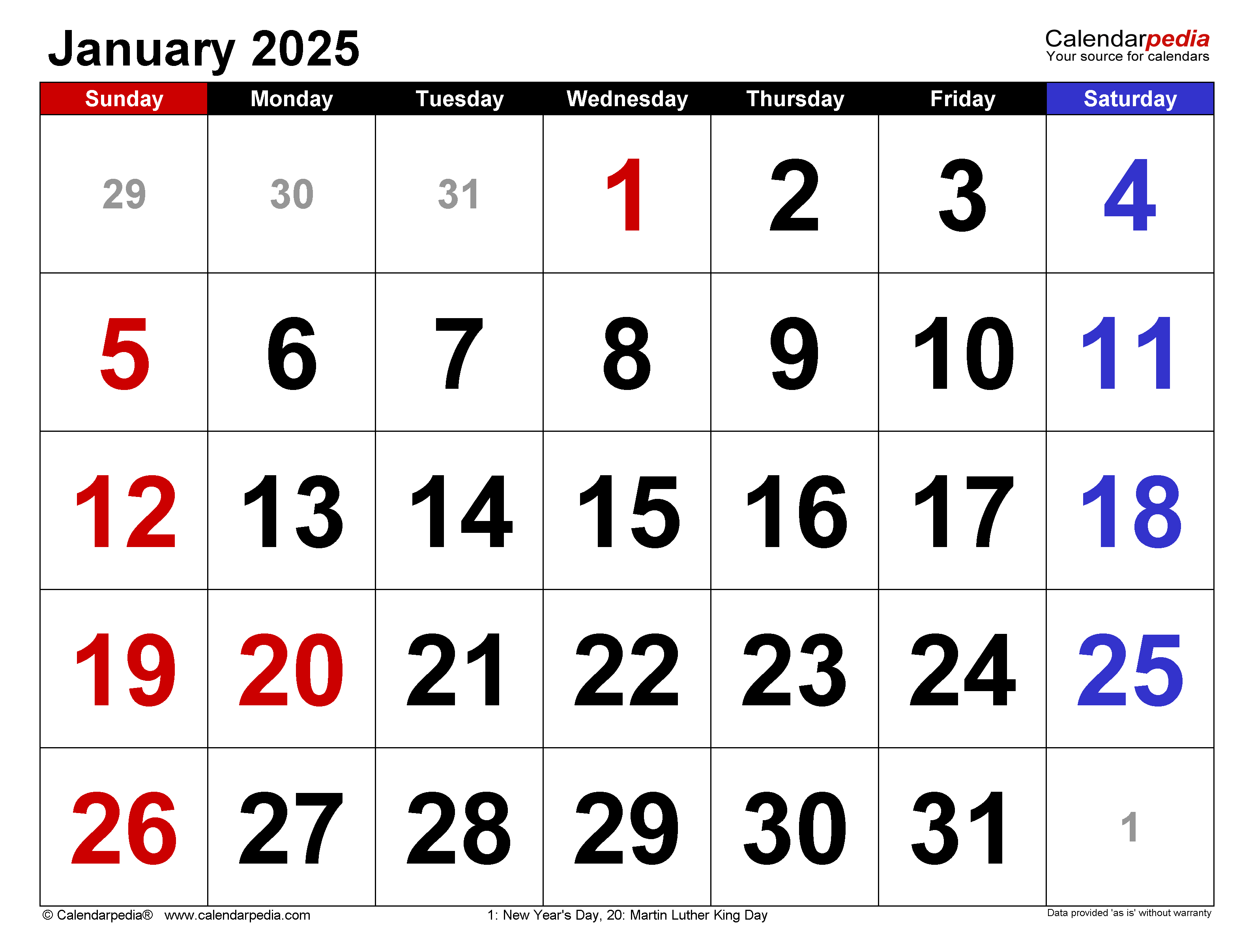
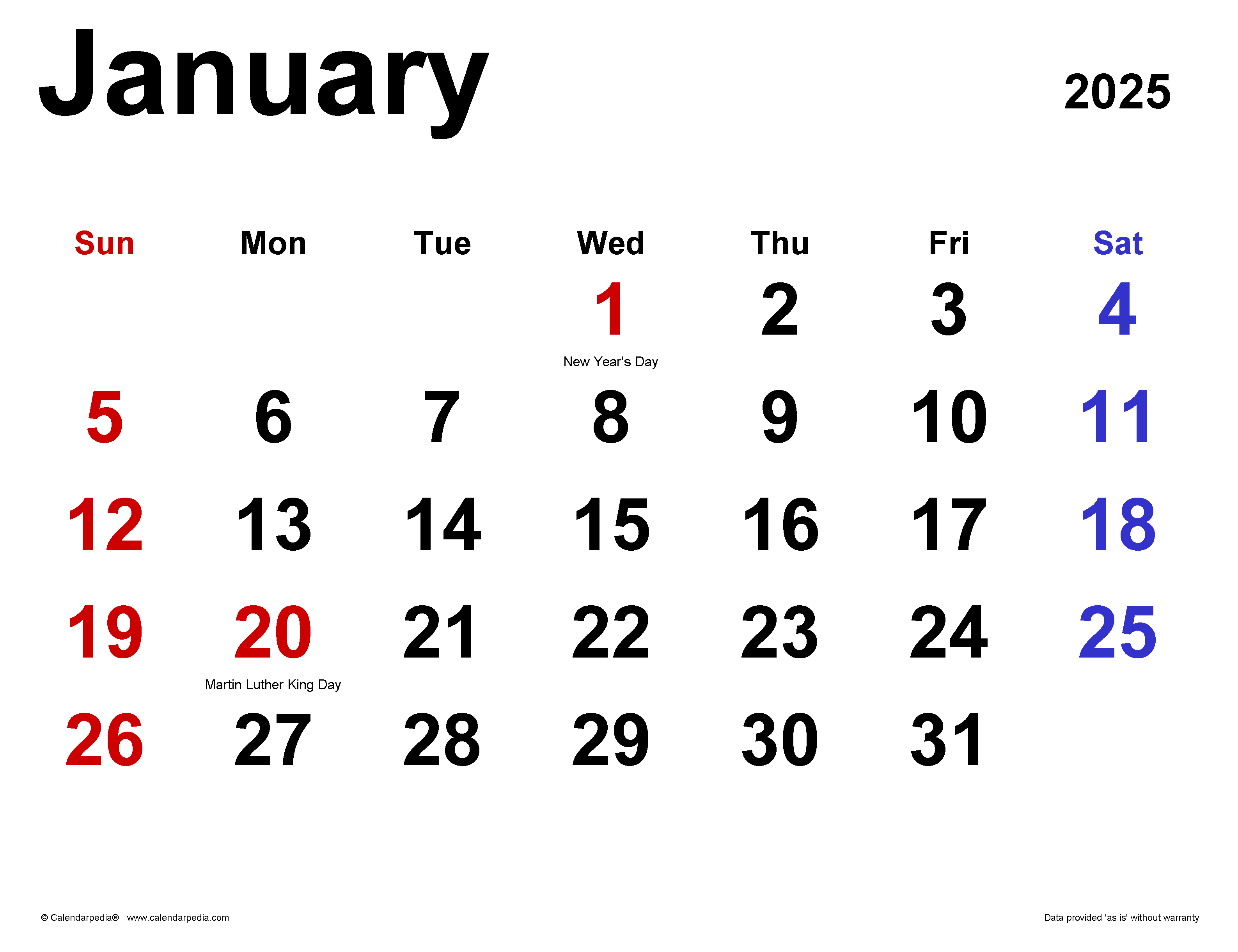

Closure
Thus, we hope this article has provided valuable insights into January 1, 2025: A Comprehensive Calendar Guide. We appreciate your attention to our article. See you in our next article!